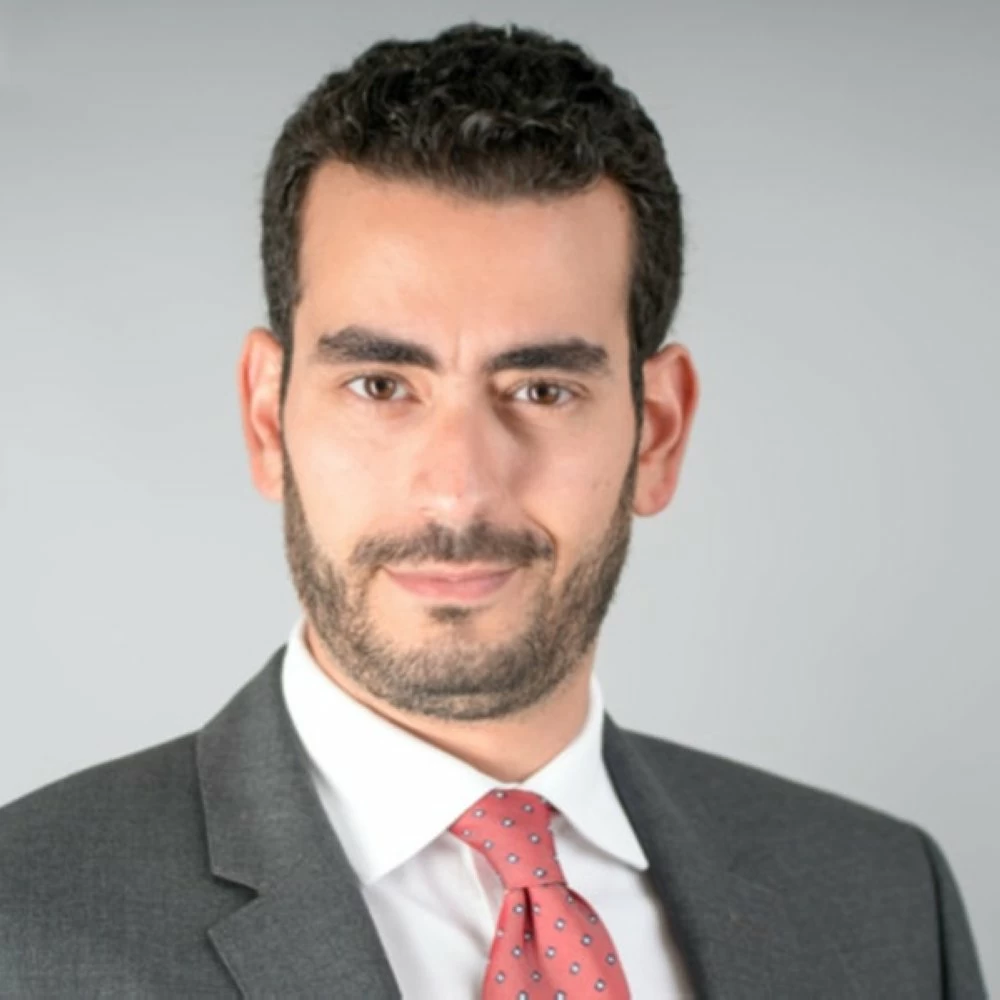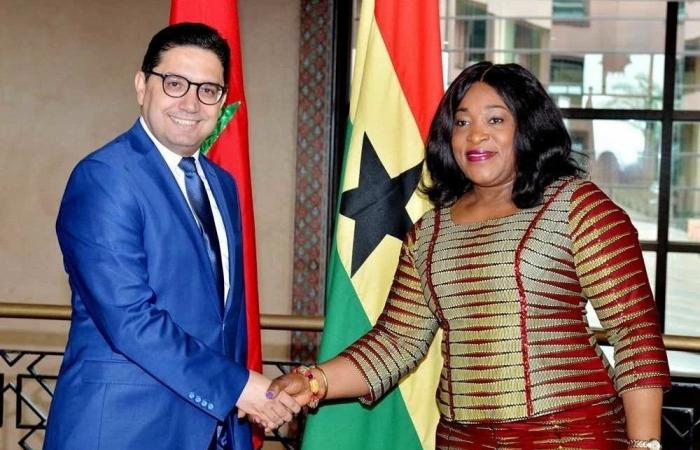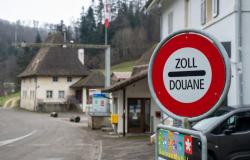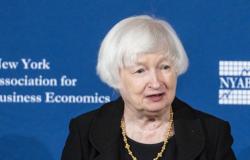This is undoubtedly the diplomatic joke of the year. Brahim Ghali, leader of the self-proclaimed “Rasd”, saw fit to send his congratulations to the newly elected Ghanaian President, John Dramani Mahama, on January 7, 2025. Except that in response, it is not a word of thanks that he received, but an official document from the Ghanaian Ministry of Foreign Affairs and Regional Integration, transmitted to Morocco on the same day of the inauguration of the new President which announces the final suspension of Accra’s relations with the Polisario. And that’s not all, in its correspondence, the country expressed explicit support for Morocco’s “serious and good faith” efforts to achieve a realistic political solution.
A position which leaves no doubt as to Ghana’s choice: to turn the page of an alliance with no future to join an African dynamic driven by pragmatism and cooperation. An approach that Morocco has been advocating for several years now. In fact, when HM King Mohammed VI visited this English-speaking West African country in 2017, few observers were betting at the time on a major transformation of diplomatic relations between Rabat and Accra. The context was complex at the time: Morocco had just returned to the African Union and Ghana had still recognized the pseudo “SADR” since 1979. However, this visit, which resulted in the signing of several economic cooperation agreements , agricultural, financial and political embodied the philosophy of Moroccan strategy in terms of external relations. Subtle and visionary, Rabat’s diplomacy favors the construction of useful and mutually beneficial partnerships in the long term and it must be said that so far, this approach is bearing fruit.
Ghana, key player in West Africa
With solid political stability and a booming economy, Ghana today stands out as a key player in West Africa. In the space of a few years, the country has seen its GDP grow at a sustained rate, reaching $82.65 billion in 2023, placing it among the ten most dynamic economies on the continent. This success is based in particular on cocoa, of which Ghana is the world’s leading exporter. But the country is not limited to its fertile lands. Its mining and energy sectors, true pillars of its development, are experiencing rapid expansion. Gold, which represents almost half of export earnings and oil production which exceeds 200,000 barrels per day, give Ghana strategic weight in the region. Add to this its privileged position in the heart of the Gulf of Guinea, a crucial crossroads of global trade.
This economic rise has not gone unnoticed. Since the Royal visit in 2017, relations between Morocco and Ghana have significantly strengthened. This is evidenced by Moroccan exports, mainly of phosphate fertilizers produced by OCP, which show an impressive average growth of 14% per year over the last two decades. In 2021, they were estimated at $133 million. Furthermore, several Moroccan companies, such as CIMAF (cement factory) and BMCE Bank, have established themselves firmly in the country. These investments strengthen Moroccan economic presence and actively participate in Ghanaian growth. In 2023, a non-double taxation agreement between Morocco and Ghana which aims to facilitate trade and fight against tax evasion also illustrated the desire of the two nations to promote an environment conducive to business.
It is obviously this desire of Accra to consolidate its economic growth and its political positioning which explains its pragmatic decision to sever all links with the pseudo “RASD”. Ghana has made the choice for the future, development and cooperation and it is with the Kingdom that it has found the right ally. Its approach fits perfectly with the ambitious and inclusive vision of Morocco which has made the development and emergence of Africa a major axis of its foreign policy.
Interview with Ali Moutaïb, director of the School of Economic Warfare in Morocco, trainer, publisher and expert in strategic intelligence: Unlike its adversaries, Morocco demonstrates that it is the most reliable partner
Ghana decided a few days ago to suspend its relations with the pseudo-SADR, an additional victory to be credited to Moroccan diplomacy under the enlightened leadership of HM King Mohammed VI. The Polisario thus continues to lose, one after the other, its support in Africa. Except that this new setback undermines separatist propaganda in a country which has remained for a long time, for historical and geopolitical reasons, impervious to developments in the Moroccan Sahara issue. An English-speaking country, Ghana now joins more than thirty African countries which have chosen to consider the world through the prism of pragmatism, far from outdated and unproductive ideologies.

Ali Moutaïb.
Le Matin: Ghana has just suspended its relations with the Polisario. According to many observers, this is a tipping point for the future of the SADR? Do you agree with this reading?
Ali Moutaïb: This is indeed a major diplomatic victory, because Ghana has recognized the pseudo-SADR since 1979. It is a country whose economic weight is considerable in West Africa and which plays a central role within the Community of West African States (ECOWAS). However, I would not describe this suspension as a “tipping point”, but rather as a new stage in the series of diplomatic successes achieved by Morocco. It illustrates adherence to the Moroccan approach, whether to the autonomy plan or to the vision carried by His Majesty. This process was notably initiated by the return of Morocco to the African Union in 2018, followed by the Royal tour in several countries on the continent. The fruits of these efforts are visible today, adding to several other diplomatic victories, including the recognition by the United States of Morocco’s sovereignty over its southern provinces.
-How do you explain this change in position of Ghanaian diplomacy? Does HM the King’s visit to this country in 2017 have anything to do with it?
Morocco is today reaping the fruits of several years of work and cooperation. Africa has changed and is showing more pragmatism. This development is reflected in particular by reinforced bilateral cooperation, on the economic, cultural and religious levels, the effects of which are beginning to be felt. His Majesty’s visit in 2017, followed by Morocco’s return to the African Union, marked a turning point, confirming in the eyes of many that Morocco is a credible partner. By comparison, Algerian diplomacy, very influential in the 1970s and 1980s – linked to the Polisario – seems to be in retreat today, in a world which has itself evolved a lot. Moroccan cooperation efforts, particularly around economic projects such as the gas pipeline, continue to produce results and should further bear fruit. This dialogue also includes external partners such as Germany, but also other countries, including in Latin America, which illustrates the international scope of the Moroccan strategy.
An English-speaking country, Ghana has always been part of South Africa’s zone of influence. Do you think that this withdrawal would mark a breach in this bloc known for its hostility to Morocco?
First of all, I think that there are not only blocks defined by language – English or French –, but also groupings by region. Honestly, I would not say that Ghana is part of South Africa’s zone of influence, rather it is the countries of southern Africa, such as Namibia, which are located in the South African orbit. It will also be difficult to change them as long as South Africa remains hostile to Morocco, at least on the question of the Sahara. As for Ghana, we can mention other similar cases in English-speaking West Africa, such as Sierra Leone or Liberia, which have also revised their position vis-à-vis the pseudo-SADR. Ghana is, in addition, an economic heavyweight in the region, and this decision therefore constitutes a positive signal. Today, there are not many countries left in West Africa that still recognize this entity. We hope that this dynamic will also encourage Nigeria, Mali and Mauritania to reconsider their position. With time and increased diplomatic and strategic cooperation, I am convinced that these states could one day also lean towards Morocco.
Why exactly, according to you, has English-speaking Africa always adopted anti-Moroccan positions regarding the Sahara question?
I do not think that English-speaking Africa constitutes a homogeneous bloc, and I have given several examples which show this. It nevertheless remains a major player in English-speaking West Africa: Nigeria. For complex and historical reasons, this country is currently adopting a position of pragmatic neutrality, while maintaining cooperation with Morocco. I am convinced that, sooner or later, he will end up leaning towards the Moroccan side. However, I remain convinced that in the long term, he will join the Moroccan position.
What approach should Morocco adopt to rally the countries of this zone to its cause, what cards should it play?
Her Majesty’s pragmatic and realistic approach is based on cooperation in several strategic areas. This includes the Atlantic Alliance of African countries, the Royal Initiative for opening up the Sahel, as well as major projects such as the gas pipeline and bilateral and regional economic cooperation. However, this cooperation is not limited to the economy; other important cards are to be played, particularly in the cultural and security fields. I think it is therefore essential to move forward in a pragmatic and progressive manner. Morocco is within its rights and has perfect control over its file, which other countries recognize. The objective is to progress on different fronts to generate natural support, by demonstrating that Morocco is the most reliable partner on several issues. This is precisely what is happening today: Morocco is perceived as the best strategic ally in the region, unlike its main diplomatic adversary, Algeria, which actively supports the Polisario. His Majesty’s approach is to convince with facts: to show who is the most reliable partner and with whom it is in the interest of other countries to collaborate, while taking into account the key issues of Moroccan diplomacy. This method, based on concrete results, strengthens Morocco’s position on the international scene.






